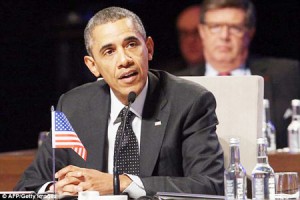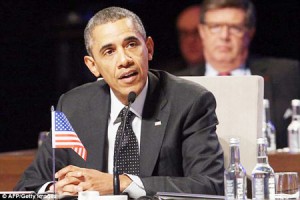Gulf News
Gordon Robison
- Following the death of Supreme Court judge Scalia, Obama now faces a choice: He can either nominate a liberal or can look for a consensus candidate
 The death last Saturday of justice Antonin Scalia of the United States Supreme Court has set in motion a political battle that seems certain to reshape this year’s American presidential election campaign. So while this may feel like (and in some ways is) the most domestic of issues, it is worth a reader’s attention even half a world away in the Gulf.
The death last Saturday of justice Antonin Scalia of the United States Supreme Court has set in motion a political battle that seems certain to reshape this year’s American presidential election campaign. So while this may feel like (and in some ways is) the most domestic of issues, it is worth a reader’s attention even half a world away in the Gulf.
Within, literally, minutes of the announcement that Scalia had passed away, senior Republicans issued statements warning that it would be inappropriate for President Barack Obama to appoint a replacement since he is nearing the end of his presidency. Majority leader Mitch McConnell declared that the Senate would refuse to consider any name sent to it by the president. A few hours later, Obama, to no one’s surprise, announced that he has no intention of leaving a Supreme Court seat vacant for a year.
“I plan to fulfil my constitutional responsibilities to nominate a successor in due time,” he said, adding “there will be plenty of time for me to do so and for the Senate to fulfil its responsibility to give that person a fair hearing and a timely vote”.
Thus began a fight that may make Washington’s current level of bitter partisan polarisation look tame. The Supreme Court is one of the most powerful institutions in America. Its nine justices serve for life, so vacancies are rare. Prior to Scalia’s death, it consisted of four reliable liberals, four reliable conservatives and one justice (Anthony Kennedy), who is often described as a ‘swing’ vote, but tends to lean to the right. Scalia’s death represents the first opportunity in 25 years for liberals to replace a conservative justice with one of their own (Obama’s two previous appointments involved replacing liberals with other liberals — so they did not alter the court’s overall ideological make-up). Thus pretty much every Republican in the US is appalled by the idea that Obama might be able to move the court to the left and to do it. Moreover, by filling the seat of a man who was arguably the most conservative justice to sit on the court in modern history.
The Republican claim that there is a “tradition” of presidents not making Supreme Court appointments in the waning months of their presidencies is nonsense. The last time a justice was confirmed in the heat of a presidential campaign was in 1916, but that is mainly because there have been virtually no election-year vacancies over the last century. In any case, Obama is not seeing out his final weeks in the White House. His term has nearly a year to run. So putting the disingenuous posturing aside, this is all about politics. Supreme Court appointments are one of the most powerful tools any American president has to shape the country long after leaving office. Obama wants to use that tool. The Republicans, in this as in virtually everything else, want to stop him from doing that. The GOP’s Senate majority gives them the ability to block any nominee, provided the senators stick together. Their hope is to keep the seat vacant, win November’s election and replace Scalia with another conservative.
Obama now faces a choice. He can nominate a liberal who he knows can’t win confirmation, but whose cause may help motivate the Democratic Party’s base in November (albeit at the price of motivating his Republican opponents as well). Or he can look for the sort of consensus candidate who could normally be expected to win confirmation easily, hoping that GOP opposition to such a nominee will make him look reasonable and lead voters to blame the Republicans for being obstructionist.
The result may not be the constitutional crisis that some commentators are now predicting (the court can operate with only eight members), but it is sure to turn the election into a referendum on the court. By Sunday morning — less than 24 hours after the news broke — activists and presidential candidates in both parties were pushing rhetoric to fever-pitch levels. The language on both sides is already unusually bitter and there is the real possibility that what little legislative activity there is in the Senate will simply grind to a halt for the remainder of the year. That, in turn, could have tremendous consequences for everything — from trade deals like the Trans-Pacific Partnership to efforts to build an effective anti-Daesh (the self-proclaimed Islamic State of Iraq and the Levant) coalition to funding of the military. None of these issues can be resolved if the government effectively shuts down over the court nomination — and with each passing month, it will become more likely that they won’t be seriously discussed. That is a prospect from which all Americans ought to recoil — even as it seems increasingly likely to be their lot.



